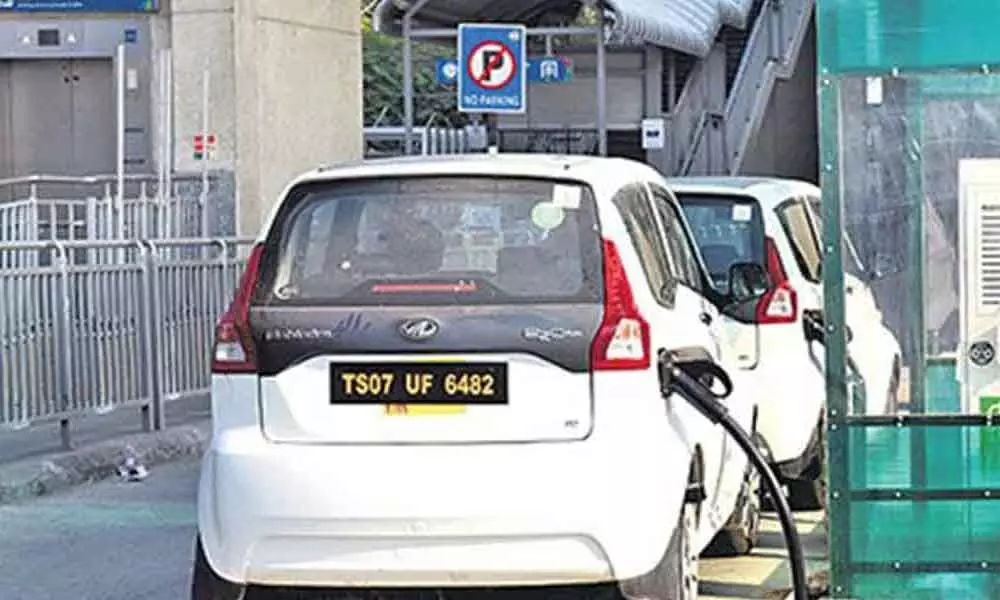New battery tech can charge electric cars up to 90% in 6 mins

New battery tech can charge electric cars up to 90% in 6 mins
In what could drive Elon Musk to push another tweet, a team of South Korean researchers have developed a faster charging and longer lasting battery material that can juice up electric cars up to 90 per cent in just six minutes.
Seoul: In what could drive Elon Musk to push another tweet, a team of South Korean researchers have developed a faster charging and longer lasting battery material that can juice up electric cars up to 90 per cent in just six minutes.
Unlike conventional cars that use internal combustion engines, electric cars are solely powered by lithium ion batteries, so the battery performance defines the car's overall performance.
However, slow charging times and weak power are still barriers to be overcome.
The research teams of professor Byoungwoo Kang and Dr Minkyung Kim from Pohang University of Science and Technology, along with professor Won-Sub Yoon at Sungkyunkwan University proved for the first time that high power can be produced by significantly reducing the charging and discharging time without reducing the particle size.
"The conventional approach has always been a trade-off between its low energy density and the rapid charge and discharge speed due to the reduction in the particle size," said Kang.
For fast charging and discharging of Li-ion batteries, methods that reduce the particle size of electrode materials were used so far.
However, reducing the particle size has a disadvantage of decreasing the volumetric energy density of the batteries.
To this, the research team confirmed that if an intermediate phase in the phase transition is formed during the charging and discharging, high power can be generated without losing high energy density or reducing the particle size through rapid charging and discharging, enabling the development of long-lasting Li-ion batteries.
Using the synthesis method developed by the research team, one can induce an intermediate phase that acts as a structural buffer that can dramatically reduce the change in volume between the two phases in a particle.
In addition, it has been confirmed that this buffering intermediate phase can help create and grow a new phase within the particle, improving the speed of insertion and removal of lithium in the particle, the researchers noted.
As a result, the Li-ion battery electrodes synthesised by the research team charged up to 90 per cent in six minutes and discharged 54 per cent in 18 seconds -- a promising sign for developing high-power Li-ion batteries.
"This research has laid the foundation for developing Li-ion batteries that can achieve quick charging and discharging speed, high energy density, and prolonged performance," he said in a paper published in the leading journal Energy & Environmental Science.














